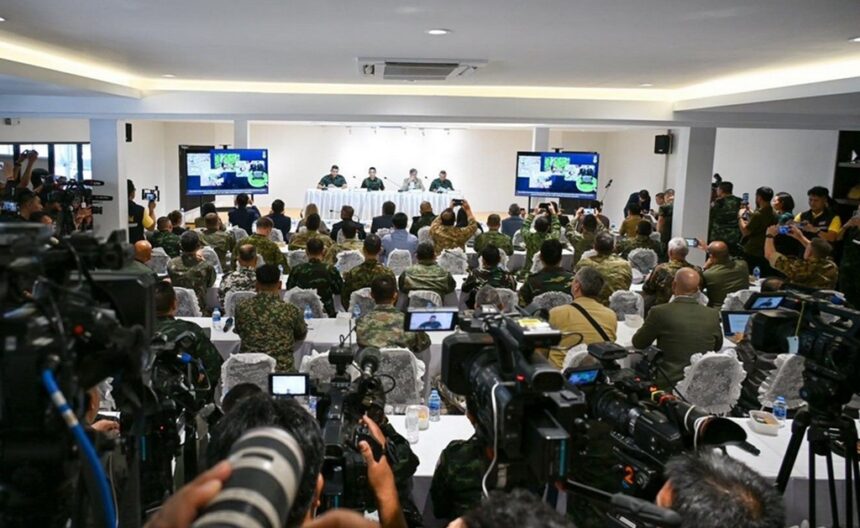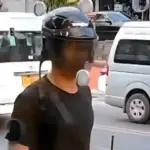BANGKOK — Thailand is pushing back against a wave of false information coming from Cambodia, led by Senate President Hun Sen, as a decades-old border conflict heats up again.
Cambodian state-run media and social channels like Facebook and X have ramped up claims that Thailand started recent clashes, painting the country as the main aggressor. Thai officials have responded by urging the public to remain cautious and double-check information from unofficial sources.
The situation escalated after a deadly incident on May 28 near the Ta Moan Thom temple, where one Cambodian soldier lost his life. Since then, Cambodian outlets have released a flood of hostile stories.
Some reports accuse Thai forces of using chemical weapons and launching attacks without cause, but Thai authorities have dismissed these as false. Fact-checkers tracked down supposed photos of chemical warfare, proving they were taken from American wildfire operations.
Hun Sen, who still holds considerable influence in Cambodia even after his 2023 resignation as prime minister, has played a leading role in the campaign. His Facebook page, which has millions of followers, often shows him dressed in military gear, directing troops and criticizing Thailand.
Analysts believe he is rallying Cambodian nationalism while helping cement his son Hun Manet’s position as the current prime minister. Hun Manet has taken a more cautious approach, but remains overshadowed by his father’s strong presence.
Cambodia’s Social Media Campaign
Cambodian state media’s reporting has increasingly mixed opinions with the news. Experts see this as a tactic meant to mislead and stir up anger. Posts accusing Thailand of military aggression often come without proof, while images and headlines in circulation on Facebook and X are regularly edited or mislabelled.
A notable claim about Thai soldiers using “toxic gas” grew in popularity, but Thailand’s Anti-Fake News Centre soon identified it as pure fabrication and put it on their list of Cambodia’s top misinformation stories.
Nob Vy, director of the Cambodian Journalists Alliance, points out that with only 32% of Cambodians having basic digital skills, most are vulnerable to misleading stories that stoke national pride or distract from problems at home.
Hashtags like #ThailandOpenedFire have taken hold among Cambodian users, while Thai social media pushes back with #CambodiaOpenedFire.
Thailand’s response includes a coordinated effort by the Ministry of Digital Economy and Society as well as its Anti-Fake News Centre. These agencies monitor and correct misinformation, urging people to rely on official statements from both sides’ defence ministries.
Acting Prime Minister Phumtham Wechayachai has accused Hun Sen of using propaganda to deepen divisions, an opinion shared by many Thai social media users actively challenging Cambodian posts.
Recall of Ambassadors
Diplomatic ties have grown even more tense following a leaked phone conversation between Hun Sen and Thai Prime Minister Paetongtarn Shinawatra in June. Hun Sen admitted to recording and sharing the call, causing uproar in Thailand.
The fallout led to Paetongtarn’s suspension and both countries pulling their ambassadors.
Although a ceasefire was reached on July 28 with the help of Malaysia, China, and the United States, the information conflict has not eased. Cambodian outlets continue to paint Thailand in a negative light, while Thai officials have turned to global platforms, including digital billboards in Times Square, to share their side of the story.
Experts say the ongoing misinformation fight is making it even harder for both countries to rebuild trust. Old disputes, like the 1962 International Court of Justice decision giving the Preah Vihear temple to Cambodia, have been used to stir up more anger. Wilaiwan Jongwilaikasaem, a journalism professor at Thammasat University, says both sides are fanning the flames of hate online, and ordinary people are caught in the middle.
With the ceasefire still holding, the real challenge is to restore public trust and stop the spread of false news. Thai leaders continue to stress the need for better media skills and international cooperation to push back against what they see as an attempt to destabilize the border region. While the shooting might have stopped, the fight for truth is far from over.














